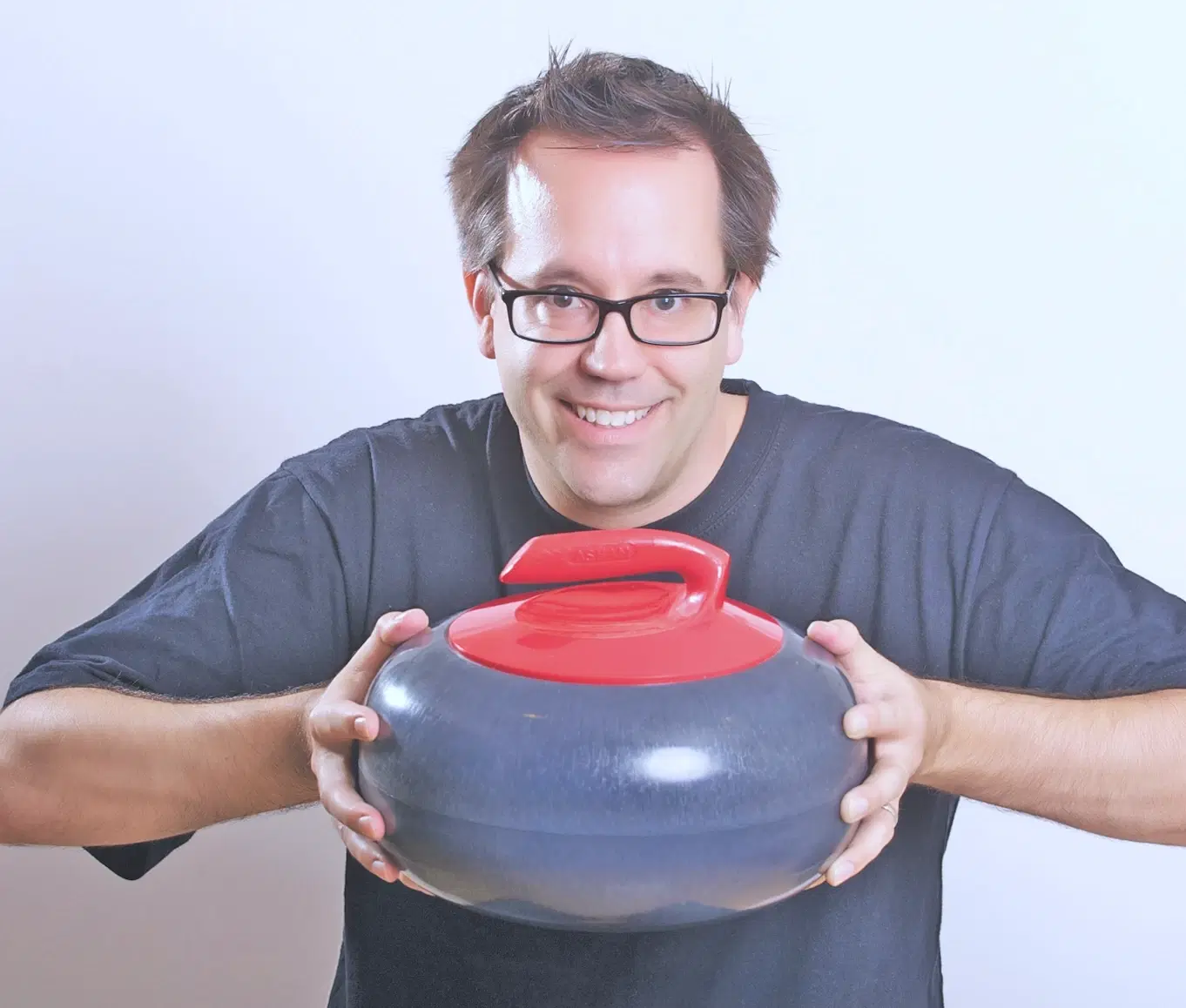

Things are very different this time.
Hold on to your seats, curling fans. This year’s broadcasts of curling at the Olympic Winter Games might start off looking … hopefully not too different.
Fans are generally familiar with the hoops people have to jump through to be admitted into the anti-Covid “closed loop” systems in Beijing, and to stay there.
Curling fans were recently informed of robots that are helping get stuff done.
They’re also feeding their human overlords.
Caught up in the fray is the usual gang of professional curling TV guys and gals that normally bring us stunning (and award-winning) moving pictures during the Games. It’s the same large group—three or four full event crews worth of talent, I’d bet—that works at varying times for the various Canadian “curling” networks (TSN, Sportsnet and CBC) as well as the World Curling Federation’s WCTV broadcast arm.
None of them are in China. Except for the host OBS commentators, that is; they are an accomplished bunch. But in terms of technical crew including cameramen, this year’s all-important curling production is, for the first time, being staffed by locals.
There is a Canadian in charge—Don Peppin, the veteran of decades of live CBC sports coverage, including Olympic curling, who retired a few years go. But Chinese production people, many of whom are complete curling rookies, are filling virtually every other technical position on the mammoth crew.
Word from Beijing is that yesterday’s full-dress rehearsal went off without a hitch.
That’s where real curlers, usually local amateurs, are the first to play a few ends on the ice and every technical position is staffed and mock-broadcasting the action.
This is obviously good news. It’s also good news that curling is not like, say, hockey … where the puck is all over the place, and at lightning speed.
Curling is methodical. It’s played in a repetitive pattern, and that means it’s teachable. And Peppin is a fine instructor.
So while there shouldn’t be any gross errors in coverage, sharp-eyed fans might notice a house camera tilted too far in one direction, or a “bug” appearing or disappearing in the corner at the wrong time. These kinds of things might happen early on, in the first few days of coverage, and if they do, they should soon magically disappear.
I remember last year’s early four-player matches from PyeongChang. It was my first Games spent at home in years, and I was shocked to hear some seriously messed up audio. I checked the Twitter—and yes, some curling fans had noticed and were starting to freak out. I reached out to Peppin, told him of the issue, and he eventually got it fixed ... but not without aggravation.
Turns out he’d scoured his facilities in Korea for hours on end before forcing his people to examine the outbound feeds, whereupon they finally found the problem in a second control room—at Sportsnet in Toronto!—some 18 steps down the line from PyeongChang.

This year’s biggest problems will probably face the broadcast talent giving fans the stone-by-stone commentary. Some broadcasters are indeed on site, such as the BBC and Canada’s Colleen Jones, but the North American talking heads have gone remote. The NBC crew—which includes color analysts Kevin Martin, Tyler George and Jamie Sinclair—will be working from Connecticut, while Canada’s CBC analysts—Mike Harris and Joanne Courtney—will call the action from Toronto.
“It’s been a challenge,” said Harris. “I’m not always looking at my monitor, I like to look around the arena … see what’s happening when the other team is throwing, stuff like that. For me, it’s about noticing the subtleties in the game.
“Can’t do that this time. But we’ll figure it out.”
I’m sure Peppin’s Chinese crew will figure things out, too. But perhaps Sportsnet should check their switching ops, just to be safe.

